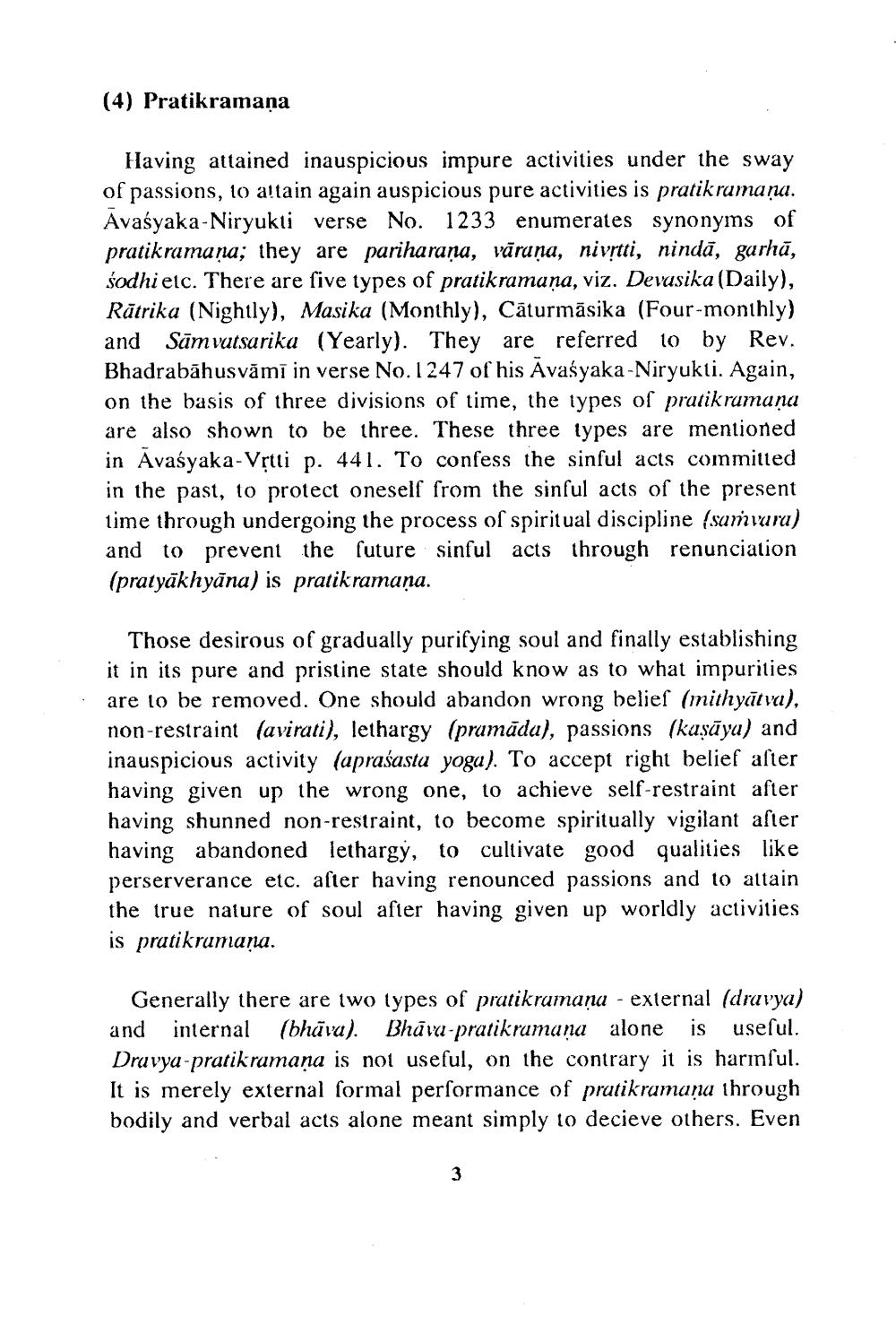________________
(4) Pratikramana
Having attained inauspicious impure activities under the sway of passions, 10 a!tain again auspicious pure activities is pratik rumaņa. Avaśyaka-Niryukti verse No. 1233 enumerates synonyms of pratikramana; they are pariharana, vāraṇa, nivítti, nindā, garhā, sodhi etc. There are five types of pratikramana, viz. Devasika (Daily), Rātrika (Nightly), Masika (Monthly), Cāturmāsika (Four-monthly) and Sām vutsarika (Yearly). They are referred 10 by Rev. Bhadrabāhusvāmī in verse No. 1247 of his Avaśyaka-Niryukti. Again, on the basis of three divisions of time, the types of pratik rumaņa are also shown to be three. These three types are mentioned in Avaśyaka-Vịtti p. 441. To confess the sinful acts committed in the past, to protect oneself from the sinful acts of the present time through undergoing the process of spiritual discipline (samvuru) and to prevent the future sinful acts through renunciation (pratyākhyāna) is pratikramaņa.
Those desirous of gradually purifying soul and finally establishing it in its pure and pristine state should know as to what impurities are to be removed. One should abandon wrong belief (mithylītva), non-restraint (avirati), lethargy (prumāda), passions (kaşaya) and inauspicious activity (aprašasta yoga). To accept right belief aster having given up the wrong one, to achieve self-restraint after having shunned non-restraint, to become spiritually vigilant after having abandoned lethargy, to cultivate good qualities like perserverance etc. after having renounced passions and to attain the true nature of soul after having given up worldly activities is pratikramana.
Generally there are two types of pratikramana - external (dravya) and internal (bhāva). Bhāva-pratikrumaņa alone is useful. Druvya-pratik rumaņa is not useful, on the contrary it is harmful. It is merely external formal performance of pratikramana through bodily and verbal acts alone meant simply lo decieve others. Even




